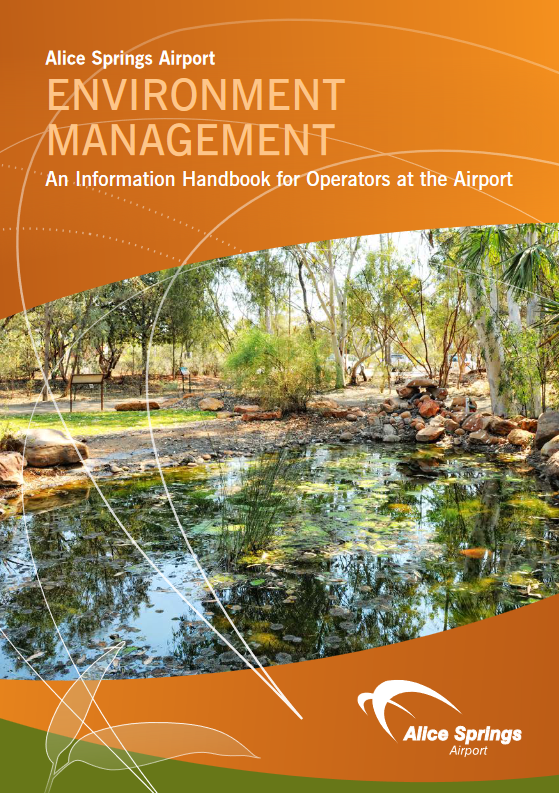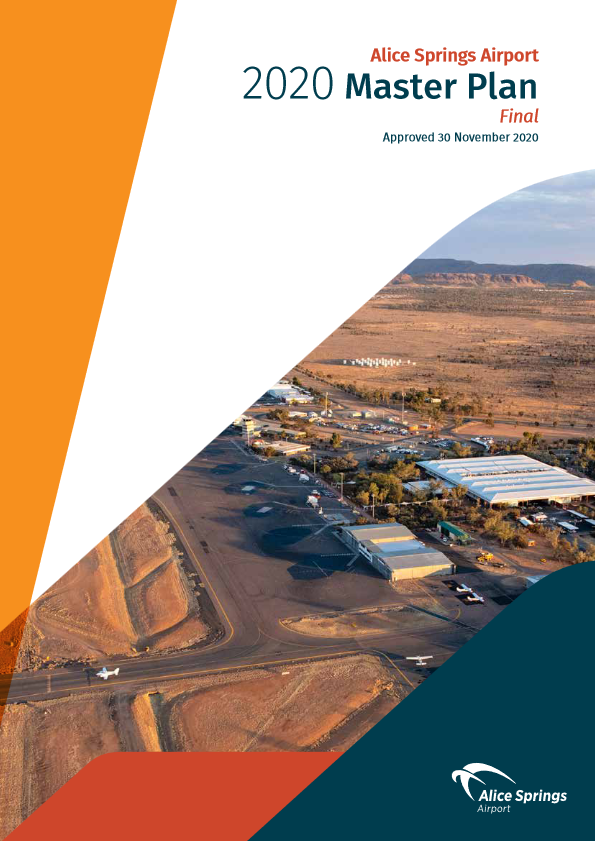Environment and sustainability
Strategy
Alice Springs Airport (ASA) is the custodian of Australia’s largest airport by landmass. The arid to semi-arid area spans for 3550 hectares, supporting a unique environment and a diverse mix of aviation and non-aviation business. ASA recognises the need to preserve and promote the ecological value of the site and engage with all airport stakeholders in best practice environmental management practices.
The detailed Airport Environment Strategy is in Appendix 1 of the 2020 ASA Master Plan.
Environmental Management System
ASA is committed to the implementation and continual improvement of a comprehensive Environmental Management System (EMS), that is consistent with Australian and International Standards, ISO 14001:2015. The Environmental Management System covers all the environmental aspects the airport can control and considers all relevant legislation, codes of practice, and standards.
The Environmental Management System's main components are:
- The Environment policy.
- Planning - environmental aspect and risk identification and assessment, development of standards, procedures, and guidelines.
- Implementation and operation - environmental responsibilities, training and awareness, communication, document and operational control, and emergency preparedness and response.
- Checking - monitoring, assessment, and auditing.
- Management review - a health check of the system itself identifying areas for improvement.

Enhancing our natural resources
Our Environment strategy 2020 - 2028 contains our previous achievements and future management actions to protect our environment and use natural resources efficiently.
- Environmental monitoring
-
ASA undertakes extensive environmental monitoring including the monitoring of flora and fauna. Yirara College students assisted our ecology consultant during the last flora and fauna survey where they learnt about monitoring techniques such as fauna tracking, camera traps, non-invasive live trapping techniques and acoustic recordings for microbats. During this event 55 native fauna species were recorded including: 14 reptile species, 34 bird species and 7 mammals. To date, 95 native flora species and 134 native fauna species have been identified at Alice Springs Airport.
- Renewable energy and our emissions reduction target
-
Alice Springs Airport has a 100% emissions (scope 1 and 2) reduction target by the year 2030, from the 2018 baseline year. The focus areas for reducing greenhouse gas emissions across Airport Development Group’ operations include continued investment in renewable energy generation, energy efficiency projects and implementation of sustainable building design principles. ASA also provide electric vehicle charging stations, for visitors and the local community to charge their electric vehicles with renewable energy.
- Water efficiency and water recycling
-
A significant amount of water is used across Alice Springs Airport to support passengers, daily operations, construction activities and airport gardens. It is important that ASA uses water wisely and undertakes water recycling initiatives. Water saving initiatives at the airport include recycling approximately 1,000,000 litres of water as part of the runway overlay project and the use of drought-tolerant native plants and drip irrigation systems for landscaped garden areas.
Resources
- Alice Springs Airport Environment Management
-
An Information Handbook for Operators at the Airport.

- Sustainability Data
-
Our Sustainability Data Provides technical information that further demonstrates our commitment to sustainability.
- Alice Springs Airport Environment Strategy
-
The detailed Airport Environment Strategy is at Appendix 1 of the 2020 ASA Master Plan.

Contacts
If you have an environmental query or you have identified a potential hazard, please contact our Environment and Sustainability Manager.
Tel: 08 8920 1820